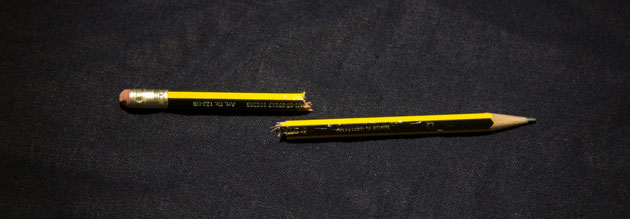Am I Charlie Hebdo?
We must engage in rigorous, complex and thoughtful processes as we contemplate our response both to the wickedness of violence in the name of religion and the publication of offensive cartoons; be they satirical or otherwise.
15 JANUARY 2015 · 19:05 CET

REFLECTIONS ON THE MASSACRE IN FRANCE
All France reeled in shock and anger when on 7 January 12 people were killed in the offices of the French satirical weekly newspaper Charlie Hebdo. As the news quickly spread around the world, cartoonists responded with satire, sorrow and outpourings of emotion.
Just as quickly the hashtag #JeSuisCharlie (I am Charlie) began trending worldwide as people joined in solidarity with those whom they believed had died to support freedom of speech. Yet even as they abhorred the killings, others raised questions about the deliberately offensive humour and racial stereotypes prevalent in Charlie Hebdo cartoons.
HOW SHOULD CHRISTIANS REACT?
Daniel Bourdanné, IFES General Secretary, was quick to comment on the complexity of the situation. ‘As we consider the recent massacre of 12 people at the Charlie Hebdo headquarters in France and the other killings at the kosher supermarket, I think we should have two reactions. Our first of course is to condemn the killings. It is never right to kill another, even if you have been deeply offended by something they have said or done. So we can express our shock and horror that these young men have taken the lives of others. And we can express our sympathy to the families of those who have died, and also to all of the people of France who are grieving deeply.
‘Our second reaction should be to ask ‘what is freedom?’ Are we ‘free’ to say absolutely anything? Are we free to promote racial stereotypes, to criticise in any way we choose? With freedom comes great responsibility. I think that this is important to remember as we approach these events with grace and sensitivity.’
ARE WE FREE TO SAY ANYTHING?
Andy Shudall, TSCF New Zealand staff worker, writes from a country where a public figure responded to the killings by saying ‘They deserved it.’ Andy thinks such a reaction is both blatantly stupid and dangerous.
‘We must engage in rigorous, complex and thoughtful processes as we contemplate our response both to the wickedness of violence in the name of religion and the publication of offensive cartoons; be they satirical or otherwise.
‘It's complicated. Some Charlie Hebdo cartoons are reprehensible and viciously racist. But the murders in the offices of that newspaper were not a strike for justice but an attack against freedom.
‘It's complicated because the Muslim population of France are much discriminated against and those cartoons will have fuelled much victimisation of innocents within France and further afield.
‘Today I've seen "kill all Muslims" and "wipe out the religious" in discussions and comments. It is complicated because within the outrage against the extremist views which have led to this unconscionable violence is a real seam of xenophobia.
‘We need to protect satire - it is vital in healthy societal discussion and it acts toward freedom and against oppression. But we cannot simply wave away bile and prejudice that masquerades as satire.
It's definitely not complicated to describe the actions of those attackers as evil. It is complicated in the aftermath not to canonise racism and xenophobia.’
IS THERE A HOPE FOR THE FUTURE?
Isabelle Veldhuizen, staff with GBU France, who fears that the killings will only encourage further secularization in France, wanted to pull back a little from the politicisation of the event. She agreed with a blog post that called Christians to pray – for the victims’ and the terrorists’ families, for justice – and to remember that we have a clear message of hope. She added, ‘In the past few days I have been pleasantly surprised by how French people reacted: with solidarity and care, rather than anger at Muslims.
‘For the future I am a bit afraid (but God is full of surprises so hopefully I'll be wrong!) that this incident will give another pretext for stronger and stronger pushing for secularism, because politics use everything as excuse to go in that direction.
‘So, about people, I'm encouraged. I do hope that in response to the massacre people will keep asking themselves questions about what they do with their life and about God.’
International Fellowship of Evangelical Students (IFES) unites national Christian student movements in more than 150 countries. Their vision is to to 'see students built into communities of disciples, transformed by the gospel impacting the university, the church and society for the glory of Christ'. This article was first published on the IFES World website.
Published in: Evangelical Focus - Features - Am I Charlie Hebdo?
